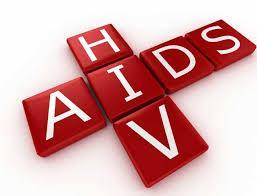
Considering the myths, hear-say, rumour and stigma that still exist, people often get HIV and AIDS confused - but the distinction is important. Brigette Bard separates fact from fiction.
HIV is a virus. AIDS is a condition. They are not the same thing.
What's the Difference Between HIV and AIDS?
HIV is an infection that you can catch and spread to other people, AIDS is a condition (or syndrome) that develops – usually many years later - in people who have been infected with HIV, but have not had the right, or perhaps any, treatment.
A person can have HIV without it ever developing into AIDS – in fact because the symptoms of HIV are often unnoticeable, Public Health England estimates that more than a fifth of people with HIV have no idea they have it.
It is impossible to get AIDS without first being infected with HIV, but, once HIV has developed into AIDS, life expectancy drops significantly. It is difficult to repair the damage to the immune system at this point, and secondary infections are common. These infections are what become fatal for a person with AIDS.
There is no a cure for HIV but with the treatments now available, people on treatment can live a happy, healthy life and have a normal life expectancy without AIDS ever developing. In fact if the correct treatment is started early enough, the virus can actually become undetectable, greatly reducing the chance of onward transmission and making it highly unlikely that AIDS will ever develop.
How HIV infection works
HIV stands for Human Immunodeficiency Virus. The virus attacks and weakens the immune system, making it less effective. Without treatment the immune system eventually becomes so damaged it can’t fight infections and diseases.
This is when someone is considered to have AIDS (Acquired Immune Deficiency Syndrome). Essentially AIDS is an advanced stage of HIV infection, which is why medical professionals sometimes refer to AIDS as late-stage HIV. At this stage even illnesses such as flu can prove life threatening.
Can a person still live a healthy life with HIV?
Absolutely.
Medications known as antiretrovirals- (ART) are so advanced in the UK, that as I mentioned above, if the right treatment is started at the right time most people live an active, healthy and full life. ART are tablets that are taken every day, which can be adapted and combined differently to suit individual people. These treatments work to prevent the virus reproducing and limit the damage to the immune system. The earlier treatment begins, the more effective it is.
When does HIV develop to AIDS?
AIDS is diagnosed in one of two ways:
- By testing the blood of people with HIV to count the number of CD4 cells - special immune cells that HIV destroys. If the number of CD4 cells is below a certain threshold, a person is diagnosed with AIDS.
- By contracting a disease that does not normally develop in people without HIV infection.
Can you tell when you are infected with HIV?
No – the symptoms are often unnoticeable. That’s why testing is so important.
Just last year, in 2014, Public Health England published a report estimating that 110,000 people are living with HIV in the UK, 26,000 of whom do not know they have the virus. It means that more than one-in-five UK people who have HIV are unaware of their condition. These undiagnosed people are responsible for the majority of transmissions of HIV to others without even knowing it.
Many people who have HIV look and feel very healthy. But the longer HIV goes undiagnosed, the more damage it can do to the immune system. Almost half of the people diagnosed in 2012 were diagnosed late and had been living with HIV for at least four years.
If you are worried that you may have been exposed to the virus, the only way to get peace of mind is to test and know your HIV status for sure.
You can find out your HIV status discreetly with the OraQuick HIV Self Test.


